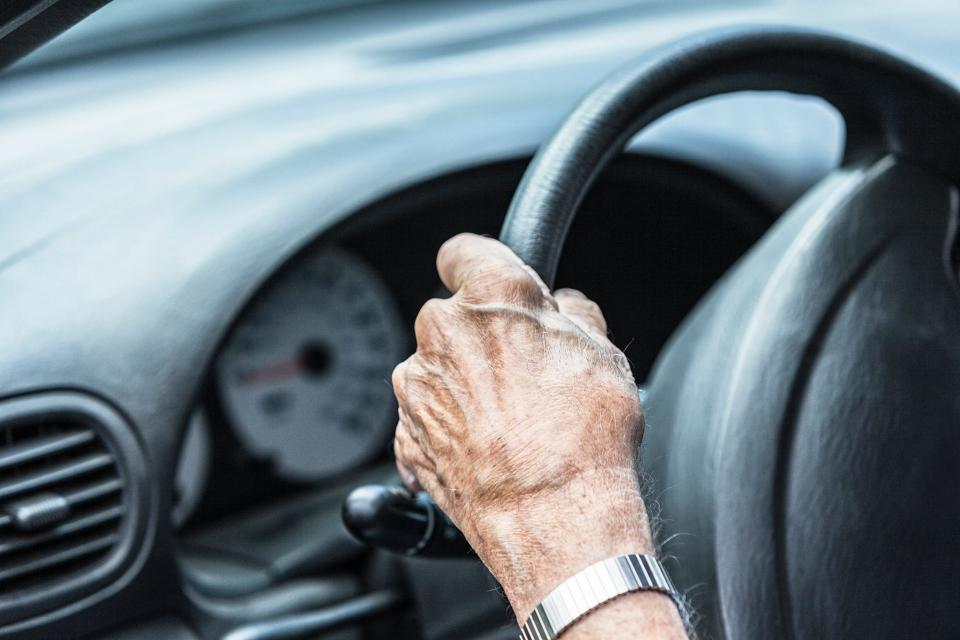When is it time to take the car keys from an aging parent?
Four weeks ago, my friend David invited me to join him at his senior group on Long Island.
In New Jersey, I do my best to entertain seniors when they invite me to speak at their luncheons. I’ve been doing this since my late 40s, when I was, usually, the youngest person in the room.
Nowadays … well, let’s just say that I’m not as young as I used to be.
I’m not as young-looking as I used to be, either.
When I was on the verge of turning 30, the people I shared this terrifying news with were shocked.
“You’re going to be 30?” one screamed. “I don’t believe it! You look so much younger!”
Same thing happened 10 years later. And 10 years after that.
“You’re going to be 40?”
“You’re going to be 50?”
“You’re going to be …”
Et cetera, et cetera.
Recently, I told people, “I’m going to be 70 next year,” and all they did was nod and smile at me.
No one screamed.
I suppose that’s because, at my age, loud noises can cause depression, anxiety and cardiovascular emergencies.
More Ervolino: When all you want is an explanation for a late coffee delivery and you get a robotic reply
I wasn’t the oldest or the youngest person in the room at David’s senior group last month, but I found myself thoroughly involved when the guest speaker introduced that week’s topic: When to take the car keys away from an elderly person.
Almost immediately, my hand went up.
(You know how some people never want to speak up when they’re in a group? Yeah, well, I’m not one of those people.)
I spoke up — a lot — because I had gone through this particular situation with both of my parents, years ago, and wanted to share my wisdom and experience with others.
It wasn’t until about 10 minutes had passed that it became obvious that hardly any of us in the room still had a living parent.
Our guest speaker was there to discuss “driving and the elderly” because WE are elderly.
(Oh, goody.)

I should probably point out that this speaker was a woman roughly 30 years younger than I am. This was obvious from the face she made when I happened to say, “It’s very hard to give up those keys — especially for men.”
She stared at me, eyebrows arched, and said, in a mocking tone, “Oh, it’s harder for men? Really?”
This was roughly the equivalent of saying, “OK, boomer” — the popular put-down of baby boomers by millennials and Gen Zers, for thinking, acting or saying something that they consider to be old-fangled and hopelessly outdated.
But, hey, if I can’t act old at a senior citizens meeting, where can I do it?
My point was that in my day, boys had to have cars by their 17th birthdays or they were exiled to Nowheresville.
We needed cars to get to school, to get jobs, to take our 16-year-old girlfriends to the movies. We needed them to strut around. To flaunt our manhood. To be GUYS.
I can recall, with great sadness, when we had to take my father’s car keys away. The idea of being confined to the passenger seat— while my mother drove — left him feeling emasculated.
He still wanted to drive. But he was in his 80s. His reflexes weren’t good. And — drumroll, please — he was legally blind.
That’s right. He was legally blind and STILL wanted to drive.
I understood, though. In my late teens my recurring nightmare involved something happening to my car. And I still have those nightmares. Today, without a spouse or children, the prospect of being car-less is just as frightening.
But reality intrudes.
Experts insist that as we age, our reflexes become slower and we have a harder time reacting to “complex situations” on the road. We have difficulties seeing at night. And, even during the day, we have problems reading street signs.
Stiff joints present additional problems for drivers. Impaired hearing, too.
I mentioned all of this last week to my friend Joan, whose mother is 85 and still drives — although not as much as she used to.
“The first step in dealing with this,” I said, “at least based on what I have read, is having a candid conversation with her about her declining vision and her reflex issues. Involve a physician if necessary. Assure her that she can manage getting around with car service apps and can easily have her grocery and other purchases delivered to her home. Don’t be confrontational, though. Let her know you understand what this loss will mean to her.”
I then asked if her mother has had any close calls recently.
“Not that I know of,” Joan said. “But she’s not driving as much as she used to.”
“I guess she realizes her limitations,” I said.
“No,” Joan replied. “She can never remember where she left her keys.”
“Oh. Well, that’s helpful,” I said.
Any carport in a storm.
This article originally appeared on NorthJersey.com: When should senior citizens drop driving?
